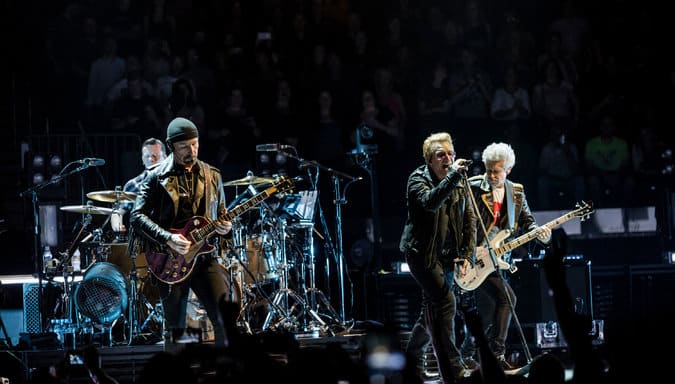Free tickets to an appearance by Pope Francis were resold for thousands of dollars, in ways that most likely violated New York State law.
As many as half the seats for many popular concerts are not offered to the general public.
And for one U2 show at Madison Square Garden, a single high-tech scalper bought more than 1,000 tickets in less than a minute.
Those are some of the findings in a detailed report to be released on Thursday by the New York attorney general, Eric T. Schneiderman, about the opaque world of ticket scalping for concerts, sports and other entertainment events.
The report, titled “Why Can’t New Yorkers Get Tickets?” is the result of a three-year investigation of the online ticketing market, and portrays a complex business in which technologically adept ticket brokers are able to profit at the expense of ordinary fans.
“Ticketing is a fixed game,” Mr. Schneiderman said in a statement. “My office will continue to crack down on those who break our laws, prey on ordinary consumers and deny New Yorkers affordable access to the concerts and sporting events they love. This investigation is just the beginning of our efforts to create a level playing field in the ticket industry.”
A month earlier, the attorney general pressured several online ticket marketplaces, including StubHub, a division of eBay, to remove so-called speculative ticket listings for concerts by Bruce Springsteen, where brokers tried to sell tickets they did not yet have. Other stars like Adele have recently taken steps to try to prevent scalpers from getting tickets to their shows.
Longstanding restrictions on ticket scalping in New York State were mostly lifted in 2007 as online sales became increasingly popular with consumers. But the attorney general’s report says that the online ticketing market has developed in ways that are often illegal.
Much of the report focuses on bots, computer programs that help their users scoop up large numbers of seats, including the best ones, by eluding the security measures of sites like Ticketmaster. Using bots is illegal in New York, but the attorney general found — using data supplied by major ticketers, credit card companies and brokers, some of which were issued subpoenas — that they have been in widespread use.
Resale brokers are required to have a license from the state, but the report found that many do not. Along with the report, the attorney general announced that it had reached settlements with two professional brokers that have operated without licenses. One broker, M.S.M.S.S. of Manhattan agreed to pay $80,000 in penalties, and Extra Base Tickets, of Garden City, N.Y., will pay $65,000.
The report also notes common practices in the music industry that are not illegal but make it difficult for ordinary fans to get tickets. Among those are so-called holds, in which large blocks of tickets are withheld for performers or sponsors; and special presales, in which tickets are offered to credit card holders or members of fan clubs.
The report, which mostly addresses the New York City area but also looked at some venues upstate like the Saratoga Performing Arts Center, says that as many as 54 percent of the tickets to most concerts are tied up in holds and presales. For one Kanye West show, at Barclays Center in 2013, 29 percent of the tickets were held for insiders. For 10 shows by top acts including Coldplay and Fleetwood Mac, the report says that as many as 70 percent of the tickets were reserved for presales.
The report makes a number of recommendations, including asking concert promoters to be more transparent about how tickets are released to the public, and encouraging secondary ticket markets to police their systems more thoroughly.
The attorney general also recommended that the state’s Legislature remove its restrictions on so-called paperless ticketing, a technology that was introduced to thwart scalpers but, according to the report, is subject to a “de facto ban” because any show using nontransferable paperless tickets is also required to offer them in transferable form, undercutting their purpose.
In a statement, Ticketmaster, which is owned by Live Nation Entertainment, said that it cooperated with the investigation and that the company supported the attorney general’s efforts to manage bots and the elimination of the paperless ticketing ban. A spokesman for StubHub said he had not seen the report and could not comment.
Post your thoughts below in the comment section.
SOURCE: New York Times
![]()


